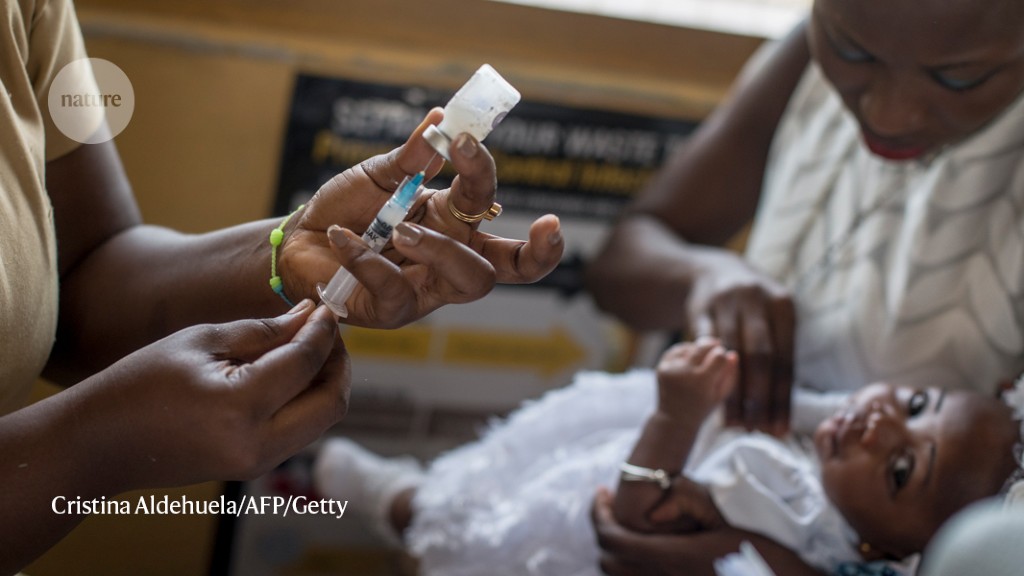 Scientists hail historic malaria vaccine... Nature - The WHO-approved RTS,S vaccine has modest efficacy and requires a complex regimen of doses, so ample funding and clear communication will be crucial to success. nature
Scientists hail historic malaria vaccine... Nature - The WHO-approved RTS,S vaccine has modest efficacy and requires a complex regimen of doses, so ample funding and clear communication will be crucial to success. nature More than 130 years after the naming of the Plasmodium parasites behind malaria, the world now has its first approved vaccine against them. Many malaria researchers have celebrated the development, but others have expressed concerns over the deployment of a vaccine that has only moderate efficacy.
On 6 October, the World Health Organization (WHO) backed the vaccine — called RTS,S — and recommended its widespread use among children in sub-Saharan Africa, which is home to the deadliest malaria parasite, Plasmodium falciparum.
“The RTS,S malaria vaccine — more than 30 years in the making — changes the course of public health history,” said WHO director-general Tedros Adhanom Ghebreyesus at a press briefing announcing the endorsement.
Compared with other childhood vaccinations, RTS,S has only modest efficacy, preventing about 30% of severe malaria cases after a series of four injections in children under the age of five1.
Nevertheless, one modelling study suggests that it could prevent the deaths of 23,000 children a year, if the full series of doses were given to all kids in countries with a high incidence of malaria2 — making a significant dent in the tremendous toll of the disease, which killed 411,000 people in 2018.
Leaders across Africa are now considering whether and how to deploy the vaccine....

